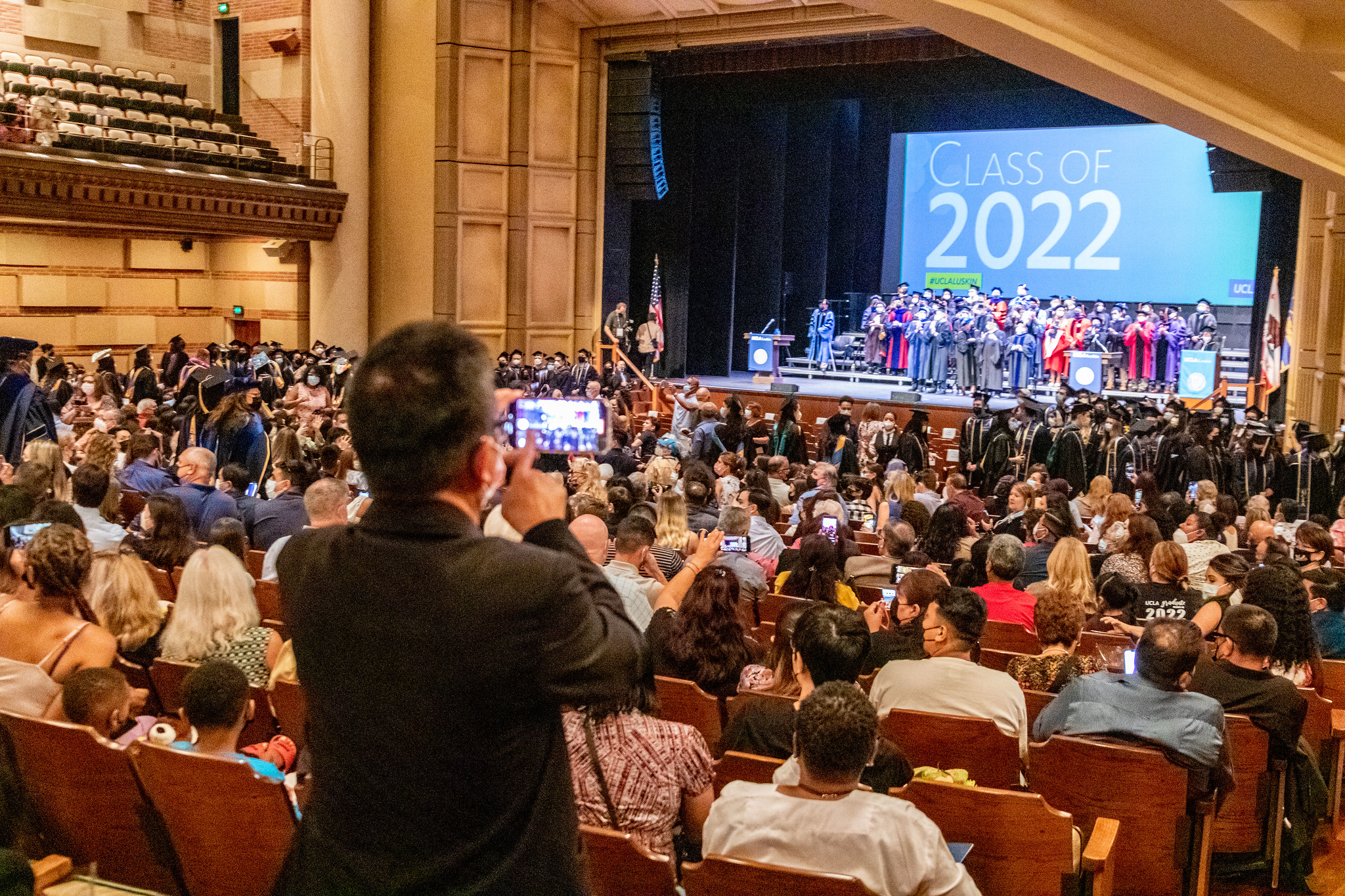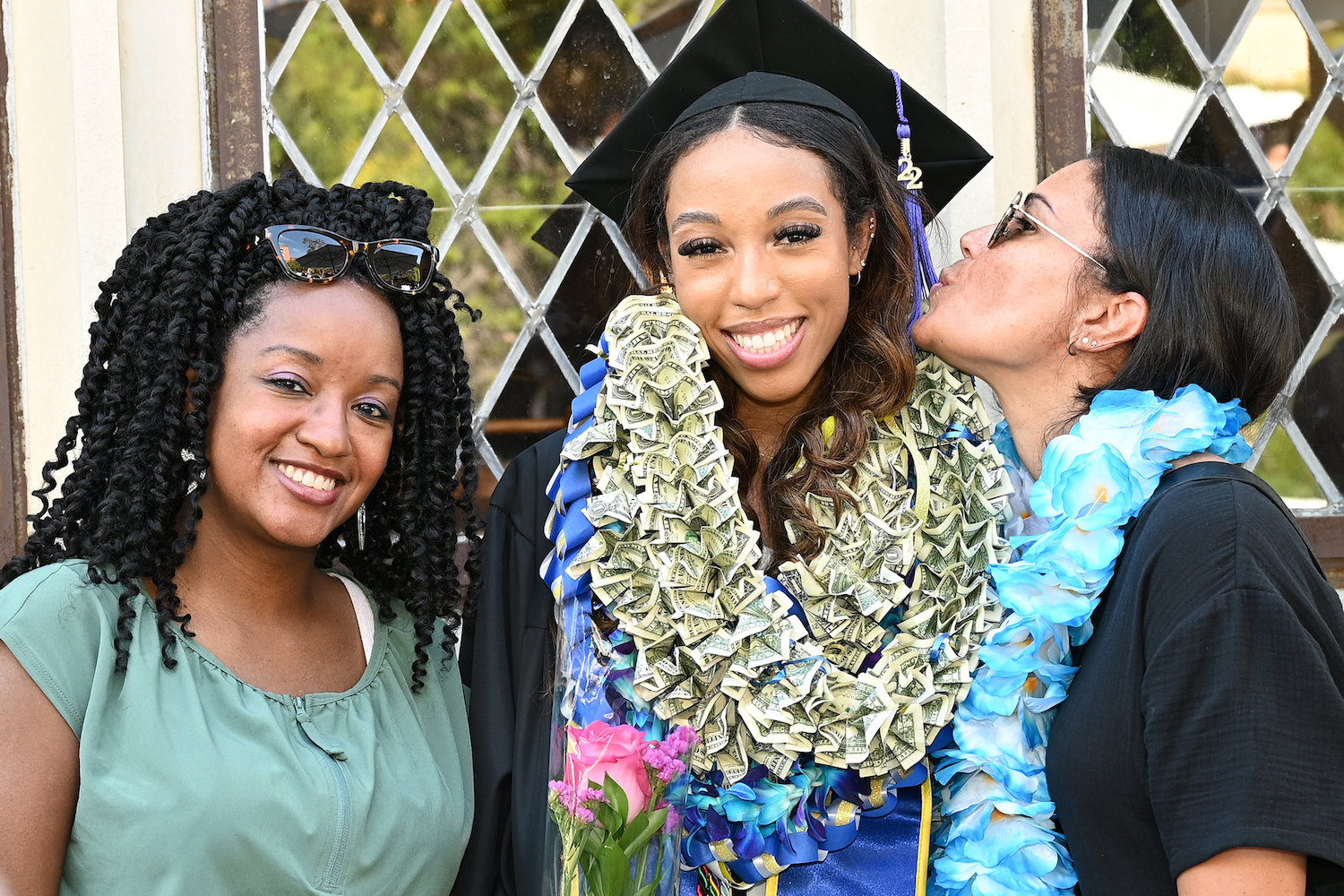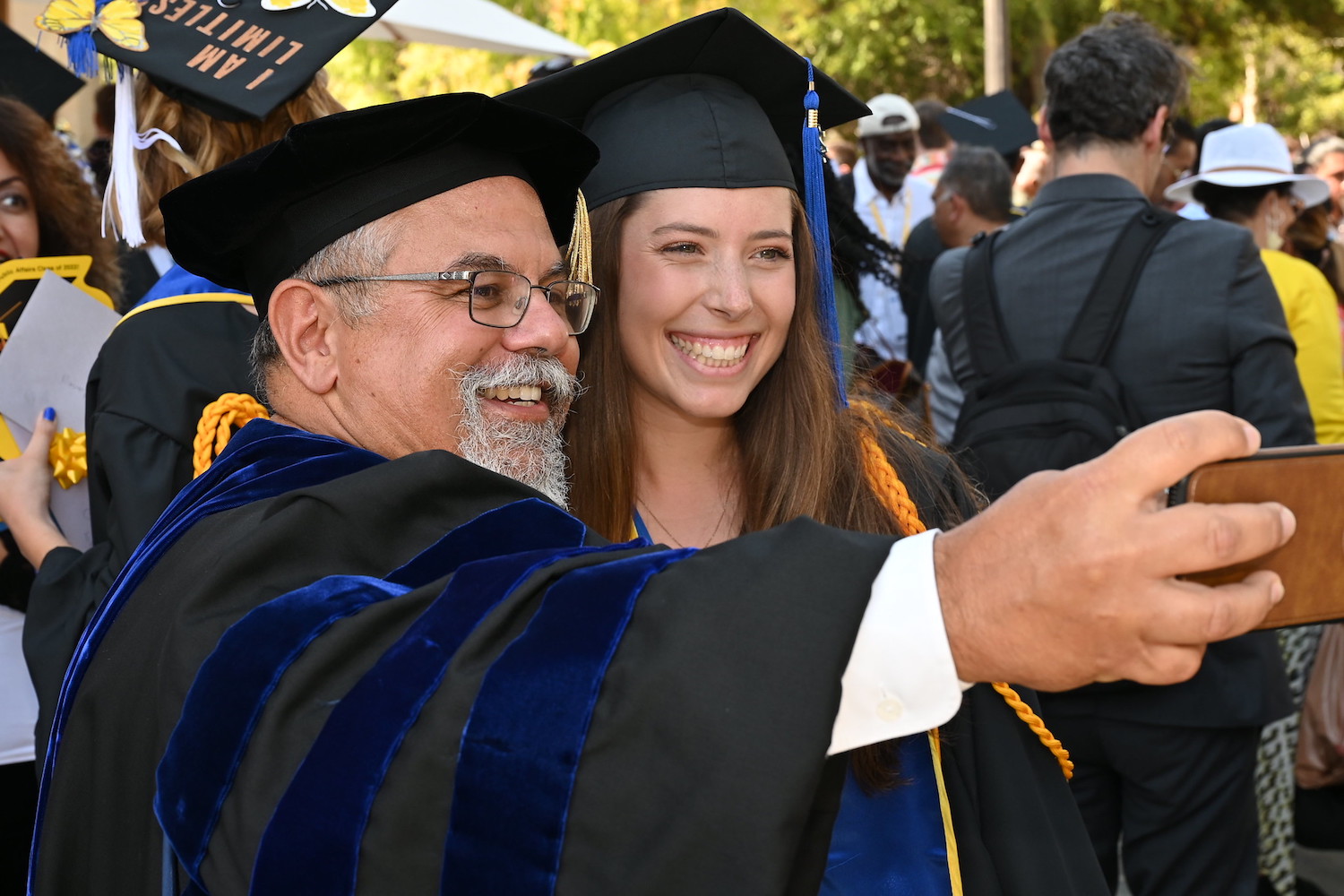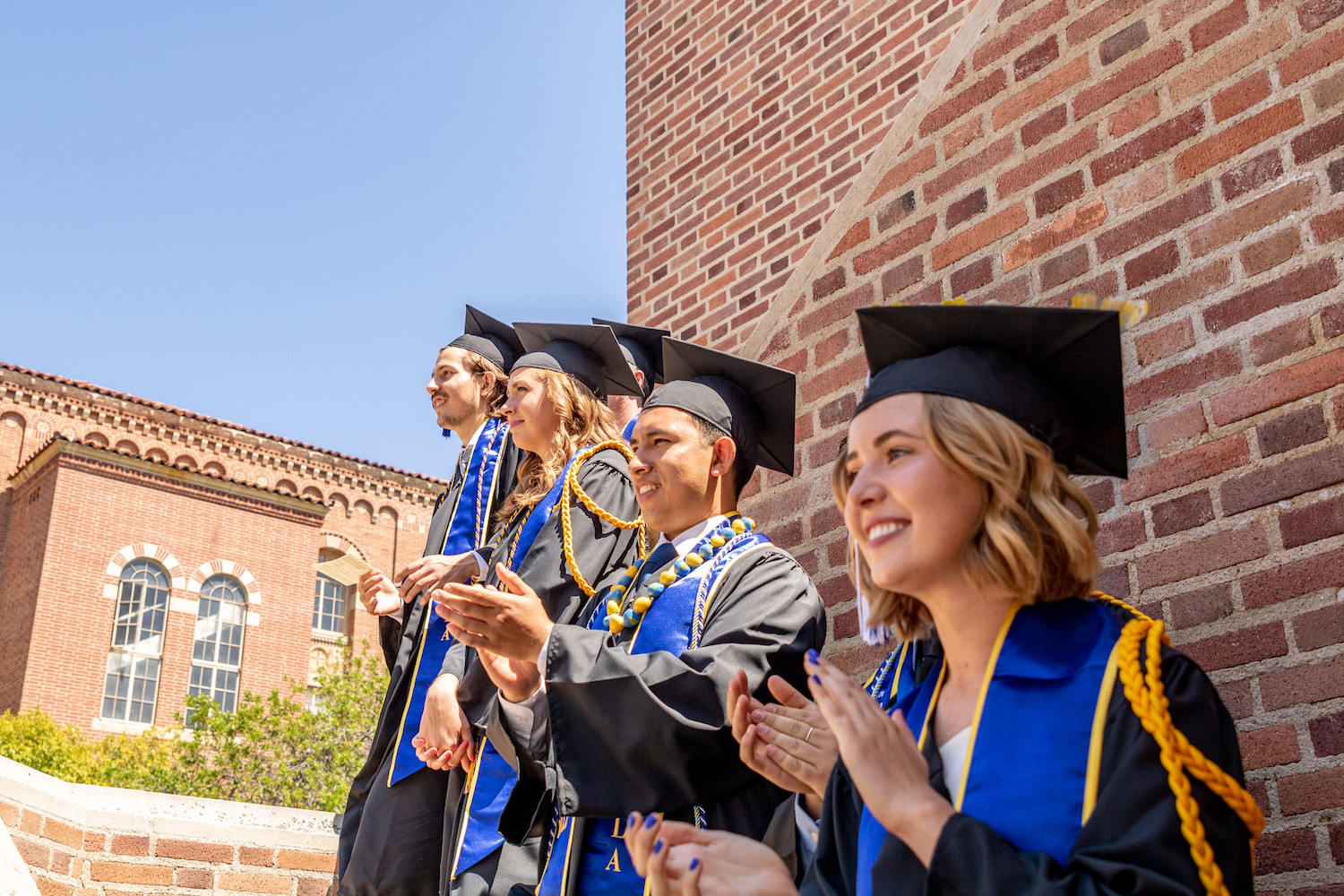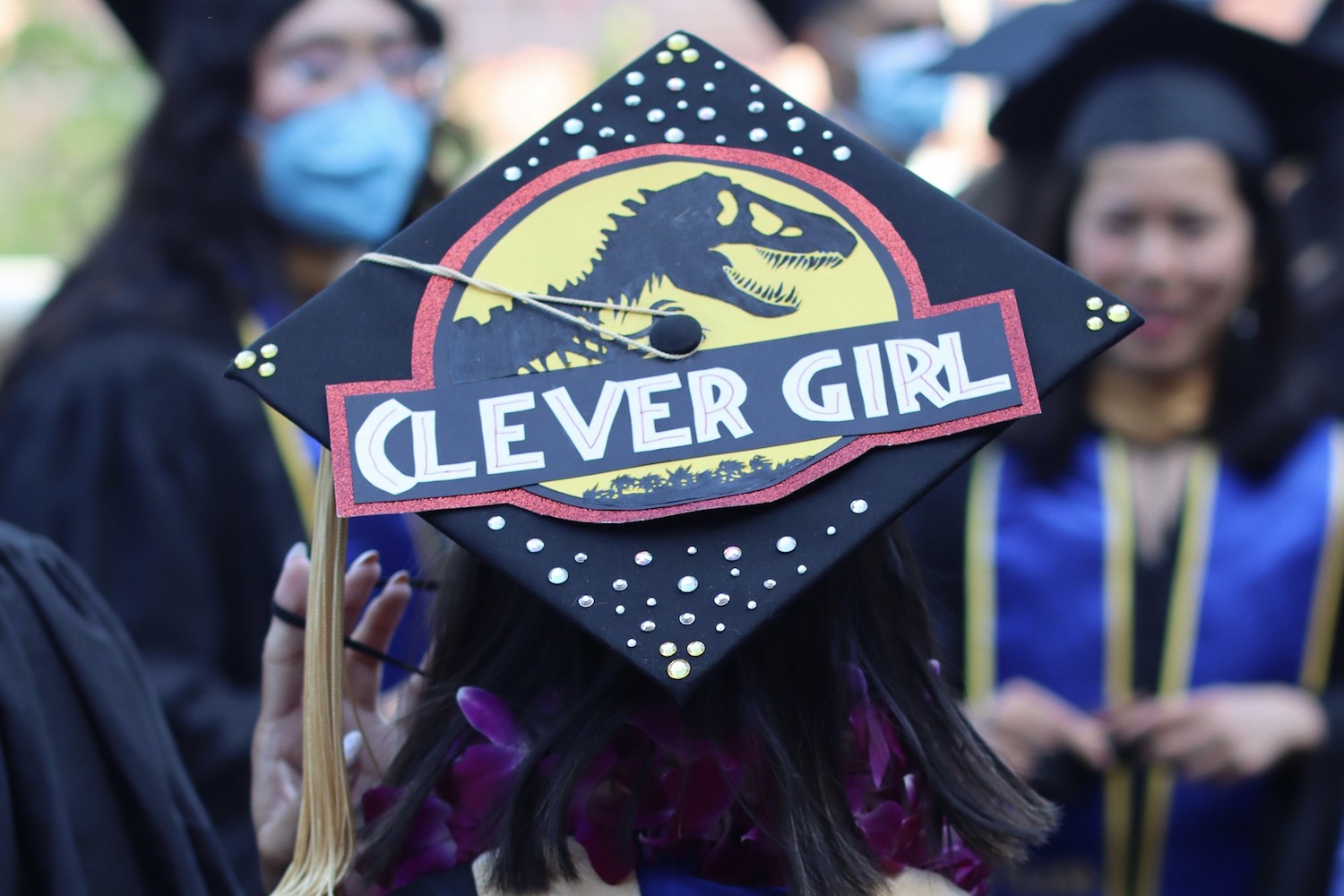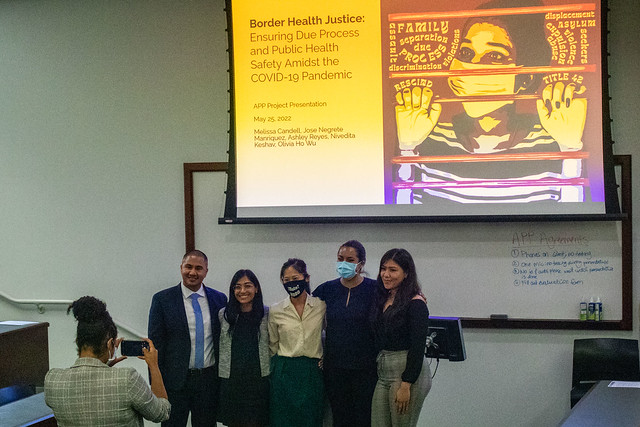UCLA Luskin celebrated its Class of 2022 with two commencement ceremonies on June 10, one for public policy, social welfare and urban planning scholars earning advanced degrees and a second honoring students awarded the bachelor’s in public affairs.
U.S. Speaker of the House Nancy Pelosi spoke to undergraduates on the patio of UCLA’s Kerckhoff Hall, and actor and social justice activist George Takei addressed students earning master’s and Ph.D. degrees in UCLA’s Royce Hall.
Each of the speakers issued a call to action to graduates who are entering a troubled world. They shared a message of empowerment, encouraging students to look within themselves, identify their unique gifts and use them to make a difference.
“Recognize who you are, what your strengths are, because our nation needs you, you, you, you,” Pelosi said, pointing to individual graduates.
Takei, too, called on his audience to tap into the primal urges that move them to action.
“Let us seek out our own human essence,” he said. ‘You are all infinite in diversity, working together in infinite combinations. And yet you are one, all aligned to contribute to making this a better society.”
The speakers were introduced by UCLA Luskin Dean Gary Segura, who had his own charge to the Class of 2022.
“We are in a critical moment in the history of this nation and of this society,” Segura said. “We’re deciding who we are as a people, what values matter to us as Americans, what is our role in human history. …
“So beyond merely congratulating you, I want to thank you, perhaps prematurely, for all that we expect you to do with what you have learned.”
Segura acknowledged that the graduates’ time at UCLA was upended by the COVID-19 pandemic, a theme echoed in speeches from students selected to represent their programs: Anahi Cruz of Public Policy, Vanessa Rochelle Warri of Social Welfare, Paola Tirado Escareño of Urban Planning and Samantha Danielle Schwartz of the undergraduate Public Affairs program.
Following each ceremony, graduates and guests gathered at outdoor receptions to take photos and offer congratulations before entering the ranks of UCLA Luskin alumni.
The two Class of 2022 commencement speakers are known for blazing trails in their fields.
Pelosi, a member of Congress for more than three decades, made history in 2007 as the first woman elected to serve as speaker of the House. She has championed legislation that has helped to lower health care costs, increase workers’ pay and promote the nation’s economic growth. In 2013, Pelosi was inducted into the National Women’s Hall of Fame at a ceremony in Seneca Falls, New York, the birthplace of the American women’s rights movement.
Takei is best known for his role as Lt. Hikaru Sulu in “Star Trek,” the groundbreaking sci-fi series that featured a multiethnic cast and a plot centered on peace among all peoples. He is also a bestselling author with an immense social media following, which he has used as platform to advocate for the LGBTQ and Asian American communities and educate his audience about U.S. internment camps for Japanese Americans, where he and his family were held during World War II.
Both speakers described the tumultuous era awaiting the Class of 2022, one of political division, racial hatred, gun violence, housing injustice, a climate emergency and a battle to defend democracy at home and abroad.
“When people ask me, ‘What gives you hope for the future?’ I always say the same thing: young people,” Pelosi said.
Since the nation’s founding, “It has been young people who have refused to remain silent, led the civil rights movement, taking to the streets, casting ballots, making change happen. …
“So right now, you and your peers, you’ve seized the torch in so many ways, marching for our lives, your lives, sounding the alarm on climate, demanding justice, justice, justice for all.”
Pelosi had a special message for the women in the audience: “I want you to know your power. … And I want you to be ready.
“You don’t know what’s around the next corner, and that applies to all of you but especially to the women. Because nothing is more wholesome to the politics and the government and any other subject you can name than the increased participation of women.”
To those considering entering public office, she advised. “You have to be able to take a punch, and you have to be able to throw a punch. For the children, always for the children.”
Takei called on the graduates to use 21st Century tools to “create a new version of our future.
“You today live in an incredibly complicated universe, empowered by technology that can extend to the outer reaches of space as well as penetrate down to the very core of this planet,” he said. “Perhaps, just perhaps, might we have developed an overabundance of tools and know-how?”
He recalled the unexpected silver lining of the devastating COVID-19 pandemic: the blue sky, crystal-clear air and restoration of nature as cars, trucks, trains and planes were stilled.
“Our planet was new again. And this was not virtual, it was breathtakingly real,” Takei said.
“Can we reprioritize our goals to reclaim our planet? We look to you, the high-tech generation, the urban planners, the policymakers, those who work to better the welfare of our society, to seize this moment.”
A double Bruin who earned bachelor’s and master’s degrees at UCLA in the 1960s, Takei reminded his audience of the long line of dignitaries from science, politics and the arts who had taken the Royce Hall stage: Albert Einstein, John F. Kennedy, Ralph Bunche, Marian Anderson, George Gershwin and many more.
“All these notables made history,” Takei said. “They transformed their times. They confronted the world they found and made it better with their brilliance, their vision, their talent and their humanity. …
“You, the graduating class of 2022 of the Luskin School of Public Affairs, are the heirs to their legacy. Take their accomplishments as your inspiration.”
View a video of the UCLA Luskin undergraduate commencement ceremony featuring House speaker Nancy Pelosi.
View pictures from the UCLA Luskin undergraduate commencement celebration.
View pictures from the UCLA Luskin graduate commencement celebration.
